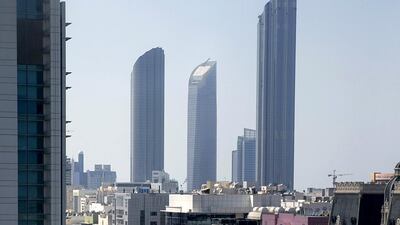The plunge in oil prices prompted HSBC to cut this year’s economic outlook for 13 crude exporters across central, eastern Europe and the Middle East as public spending drops.
Economic growth in the grouping will slow to 1.8 per cent, compared with an estimate of 2.6 per cent in October, the London-based bank said in a report yesterday. Russia’s GDP may shrink 3.5 per cent, compared with an October forecast of a one per cent-contraction, the bank said.
“With the lower oil price, we are looking for an across the board squeeze,” Simon Williams, chief CEEMEA economist, said in a phone interview from London. “Oil-funded public spending will slow, public and private investment will moderate, and consumption will ease as confidence falls. Governments as borrowers rather than creditors will also put pressure on liquidity.”
Oil exporters in the region, especially in the six-nation GCC, have used oil wealth over the past decade to transform their cities, building finance centres, airports and ports that turned the Arabian desert into a banking and travel hub. Crude slumped almost 50 per cent last year as the US pumped oil at the fastest rate in more than three decades while Opec resisted calls to cut supply.
Saudi Arabia, the world’s biggest oil exporter, may post a budget deficit at 11 per cent of GDP this year. In October, HSBC projected that the kingdom would post a surplus.
The Saudi economy may grow 2.8 per cent this year, HSBC said, the slowest pace since 2009. Economic growth in the UAE, the second-biggest Arab economy, will slow to 3.1 per cent this year from an estimated level of 4.9 per cent in 2014.
The bank, however, doesn’t expect a repeat of the recession in 2008 that saw Dubai teeter on the brink of default a year later. “We don’t have the same excesses, particularly in the credit market and especially in the GCC,” Mr Williams said.
business@thenational.ae
Follow The National's Business section on Twitter

